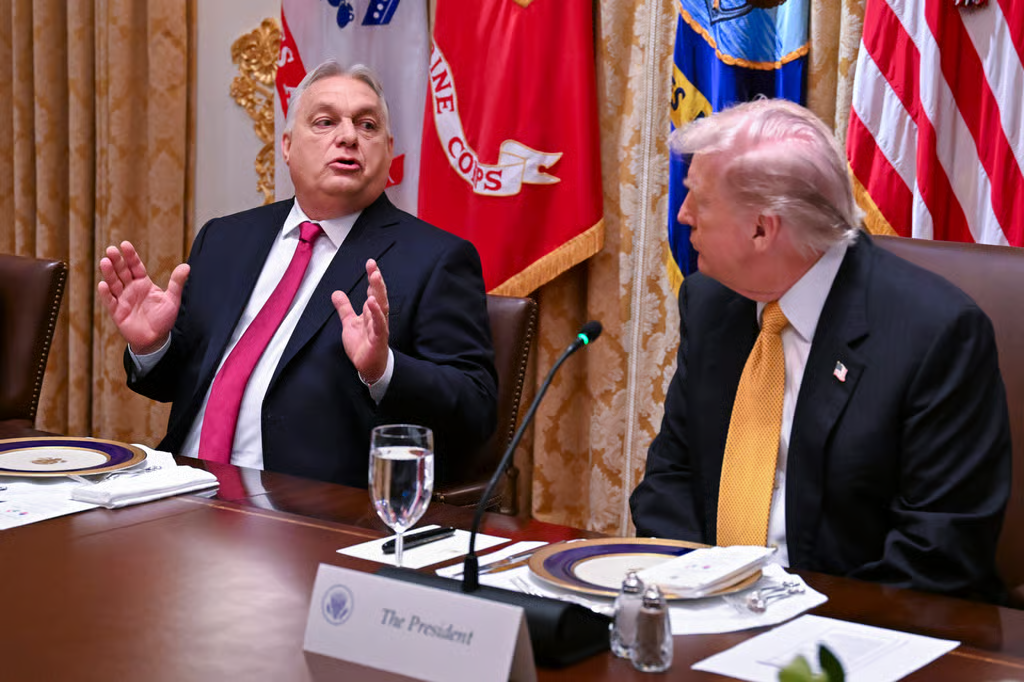Why is Hungary exempted from US energy sanctions?
Hungarian Prime Minister Viktor Orbán’s visit to the US has attracted special attention as Budapest has secured an exemption from energy sanctions and hinted at the possibility of financial assistance from Washington. The move carries multiple layers of significance for both Hungary and the US’s strategic calculations.
Political victory
According to sources, Prime Minister Viktor Orbán returned to Budapest with the announcement that the US administration had agreed to provide Hungary with a “financial shield” that would reduce the country’s risk if Brussels continued to suspend aid due to rule-of-law concerns. He described it as “a step that neutralizes the financial tools that the EU can use to pressure Hungary,” and asserted that “we have resolved this with the Americans.” Although Washington has not confirmed the details, analysts say the statement implies a potential financial arrangement that could take the form of a currency swap or credit support similar to the US’s recent support package for Argentina under President Javier Milei.

In particular, one of the most concrete results from the meeting was that Hungary was exempted from US sanctions related to Russian oil and gas. According to Mr. Orbán, Budapest received a full exemption for oil and gas supplied via the two pipelines Druzhba and TurkStream. Under the agreement, Budapest also committed to buying liquefied natural gas (LNG) from the US, with a total contract value of about 600 million USD, which is considered a move showing goodwill and balance between the two sides.
With such results, this trip to the US can be considered a political victory for Mr. Orbán. After 15 years in power, his Fidesz party is leading in the polls for the first time, as a wave of protests led by the opposition is attracting increasing public support. Therefore, the image of Orbán being warmly welcomed by the US President, along with the announcement of a “big financial agreement”, is a significant lever to help him consolidate his position and assert his governing capacity on the international stage.
Beyond the economic factor, another goal pursued by the Hungarian leader is to promote his role as a mediator in efforts to end the Russia-Ukraine conflict. Prime Minister Orbán has suggested that Budapest could be the venue for a summit between Trump and Russian President Vladimir Putin, a controversial initiative that fits with his image as a “pragmatic negotiator” willing to go against the EU’s common position. A source at a Hungarian foreign policy organization said: “Orbán wants President Trump to come to Budapest before the elections. This is the top priority. They will discuss the Russian gas issue, but what Orbán cares about most is the elections.” A similar view was shared by Zsuzsanna Végh, a political analyst at the German Marshall Fund, who said such a visit would be “a huge political favor” from the US president. Previously, Trump rarely attended important international events in Budapest. However, many experts say the practical prospects of this idea are not high, especially when Washington under President Trump is showing a rather tough stance towards Moscow.
Overall, this visit to the US helps Prime Minister Viktor Orbán achieve at least three goals: Reaffirming the special relationship with President Donald Trump, opening up hope to resolve financial difficulties while the EU is still freezing support funds, and strengthening the image of a strong national leader, capable of leading Hungary to overcome external pressure.
Reason for the exception
Hungary has long been seen as the “rebellious child” of the European Union, constantly challenging the bloc’s common policies. However, under President Donald Trump, Budapest is considered an “exception,” a tolerated, even favored, partner. The question is: What makes Washington willing to ease sanctions and expand cooperation with a European ally that is not easy to control?

First of all, Hungary occupies a special geopolitical position in the European security architecture. As a member of the European Union (EU) and the North Atlantic Treaty Organization (NATO), Hungary also maintains close relations with Russia and China, which makes it a “strategic gateway” in the US balancing calculus. From Washington’s perspective, keeping Hungary within the Western orbit of influence, through limited concessions, is still a wiser choice than pushing Budapest closer to Moscow or Beijing.
Second, President Trump has a close personal and ideological relationship with Prime Minister Viktor Orbán. The two leaders share populist, conservative, and skeptical views on globalism. In President Trump’s eyes, Mr. Orbán exemplifies the model of “strong national sovereignty” that he often praises. Therefore, favoring Hungary is not only a diplomatic matter, but also an internal political message, affirming the stance that “the United States can decide its own partners,” not bound by the collective orientation of the EU or NATO.
Third, Hungary has practical value in regional energy and security matters. Although it has been criticized for its dependence on Russian oil and gas, Budapest controls a significant part of the Central European energy pipeline network, including TurkStream, which carries gas from the Black Sea, and Druzhba, which connects directly to Russia. With the US expanding its liquefied natural gas (LNG) exports to Europe, a deal with Hungary would not only increase America’s energy market share, but also contribute to weakening Russia’s energy position. Hungary’s commitment to buy $600 million worth of LNG could be seen as a “win-win” deal – Budapest gets an exemption, and Washington gets more contracts and influence.
Finally, the US needs to maintain its influence within the EU, especially with countries that tend to be “policy independent” such as Hungary, Slovakia or Serbia. In the context of Europe being increasingly divided in its approach to Russia and China, prioritizing Hungary helps Washington avoid Europe forming a strategic autonomous bloc that is separate from US interests. Prime Minister Orbán may be a controversial figure in Brussels, but for Washington, he is an effective channel to understand and influence “non-mainstream” ideological currents in the EU. In general, Washington understands that, despite its small size, Hungary is holding an important role in the European chessboard: it is both a member of Western alliances and a “bridge” to the Eurasian world, and therefore a beneficial partner for the US./.
